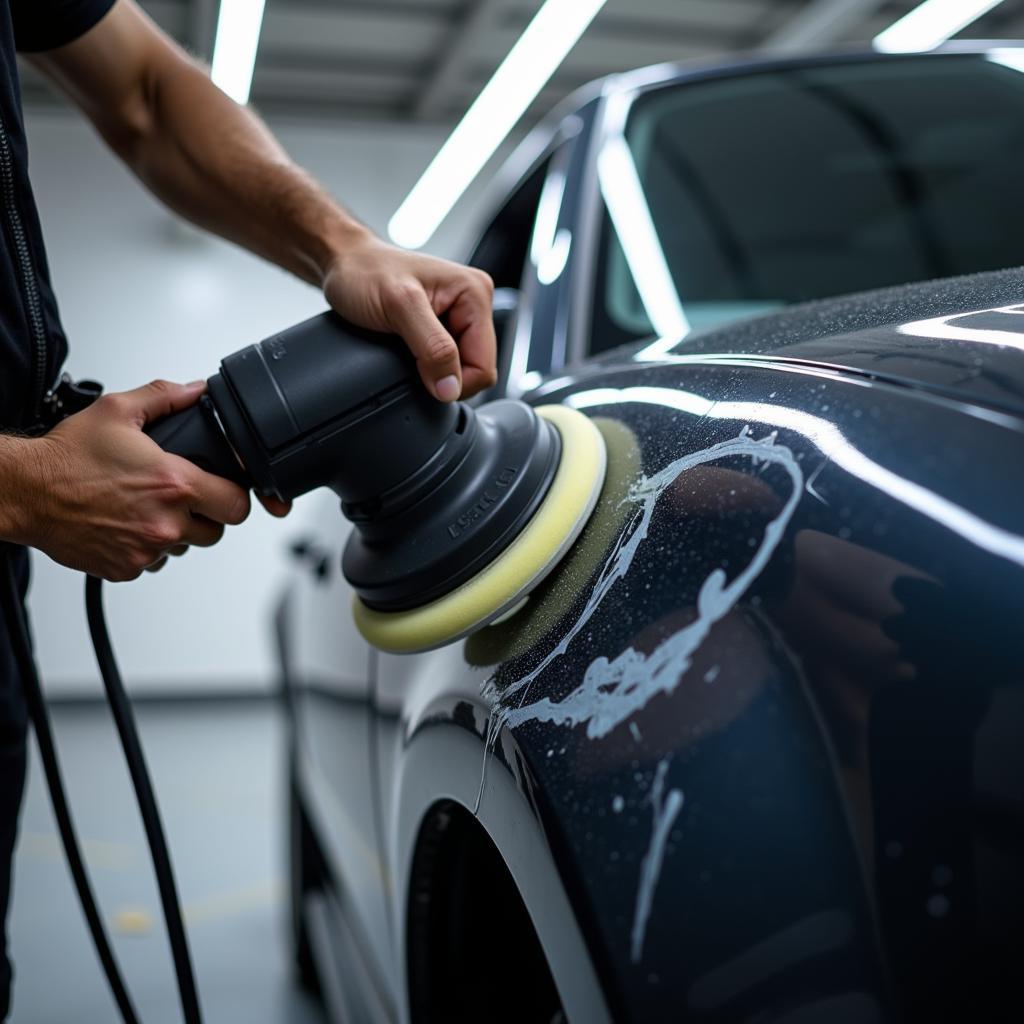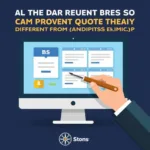Car paint scratch repair with toothpaste is a popular DIY remedy, but does it really work? Minor scratches and swirl marks on your car’s paint can be frustrating, and the idea of a quick, cheap fix using common household toothpaste is understandably appealing. This article delves into the science behind this method, explores its effectiveness, and provides expert advice on the best approach to car paint scratch repair.
Does toothpaste actually fix car paint scratches? The short answer is: sometimes, but with significant caveats. Toothpaste contains mild abrasives that can polish out very superficial scratches, much like a very fine rubbing compound. However, it’s crucial to understand that this only works on clear coat scratches, not deep ones that penetrate the paint layers. Using toothpaste on deeper scratches can actually worsen the damage. Learn more about minor scratch repair at car paint minor scratch repair.
Understanding Car Paint and Scratches
Car paint typically consists of several layers: primer, base coat, and clear coat. The clear coat is the outermost layer, protecting the color coat from UV rays and minor abrasions. Scratches are categorized based on their depth:
- Clear coat scratches: These are superficial and affect only the clear coat. They appear as light, hairline scratches or swirl marks.
- Base coat scratches: These are deeper and penetrate the color coat, revealing the primer underneath. They appear as noticeable scratches with a different color than the surrounding paint.
- Primer scratches: These are the deepest, reaching the metal underneath the primer. They expose the bare metal and require immediate attention to prevent rust.
Can Toothpaste Repair Car Paint Scratches?
Toothpaste can sometimes improve the appearance of very superficial, clear coat scratches. The mild abrasives in the toothpaste act as a polishing agent, smoothing out the edges of the scratch and reducing its visibility. However, the effectiveness of this method depends heavily on the type of toothpaste and the depth of the scratch. White, non-gel toothpaste is generally recommended, as gel toothpastes may contain ingredients that can damage the clear coat. For information on repairing scratches on black cars, visit how to repair scratches on black car paint.
How to Use Toothpaste for Car Paint Scratch Repair (If You Must)
If you decide to try the toothpaste method, proceed with caution and only on very minor clear coat scratches.
- Wash and dry the affected area thoroughly.
- Apply a small amount of white, non-gel toothpaste to a soft, clean microfiber cloth.
- Gently rub the toothpaste onto the scratch in a circular motion for a few minutes.
- Wipe off the excess toothpaste with a clean, damp microfiber cloth.
- Inspect the scratch. If it’s still visible, repeat the process. If it hasn’t improved after a couple of attempts, stop. You may need professional car paint scratch repair. For a comprehensive guide on various scratch repair methods, see how to repair a paint scratch on a car.
Why Toothpaste Isn’t the Best Solution
While toothpaste might offer a temporary fix for very minor scratches, it’s not a recommended long-term solution.
- Limited Effectiveness: Toothpaste only works on the most superficial scratches.
- Potential for Damage: Using the wrong type of toothpaste or applying too much pressure can damage the clear coat.
- Not a Permanent Fix: The “repair” is temporary and may not last long.
Professional Car Paint Scratch Repair Options
For deeper scratches or for a more lasting solution, professional car paint scratch repair is recommended. Professional methods include:
- Touch-up paint: For small, isolated scratches.
- Scratch remover products: Specifically formulated to remove scratches and restore shine.
- Wet sanding and polishing: For more extensive damage.
- Professional repainting: For severe scratches or damage to multiple paint layers. Find local services for contra costa car paint scratch repair.
 Professional Car Paint Repair Process
Professional Car Paint Repair Process
“Using toothpaste on car scratches is like putting a band-aid on a broken bone,” says John Smith, Automotive Detailing Expert. “It might mask the problem temporarily, but it won’t address the underlying issue.”
Alternatives to Toothpaste for Minor Scratch Repair
Several products are specifically designed for car paint scratch repair and offer a more effective and safer alternative to toothpaste.
- Scratch remover pens: These pens contain a clear coat resin that fills in minor scratches and levels the surface.
- Rubbing compound: This abrasive paste is designed to remove minor scratches and swirl marks.
- Polishing compound: This finer abrasive is used after rubbing compound to restore shine and remove any remaining imperfections.
“Investing in a good quality car scratch remover is far more effective and less risky than using toothpaste,” adds Maria Garcia, Auto Body Repair Specialist. “These products are formulated specifically for car paint and deliver superior results.”
Conclusion
While car paint scratch repair with toothpaste might seem like a quick fix, it’s not the most effective or reliable solution. It’s best suited for extremely minor, clear coat scratches and should be approached with caution. For deeper scratches or a more permanent solution, professional car paint scratch repair or dedicated car scratch remover products are always recommended. For more information on toothpaste as a scratch repair solution, check out this dedicated resource: car paint scratch repair toothpaste. Remember, proper car care and maintenance are crucial for preserving your car’s appearance and value.
When you need assistance, please contact WhatsApp: +1(641)206-8880, Email: [email protected]. We have a 24/7 customer service team.


